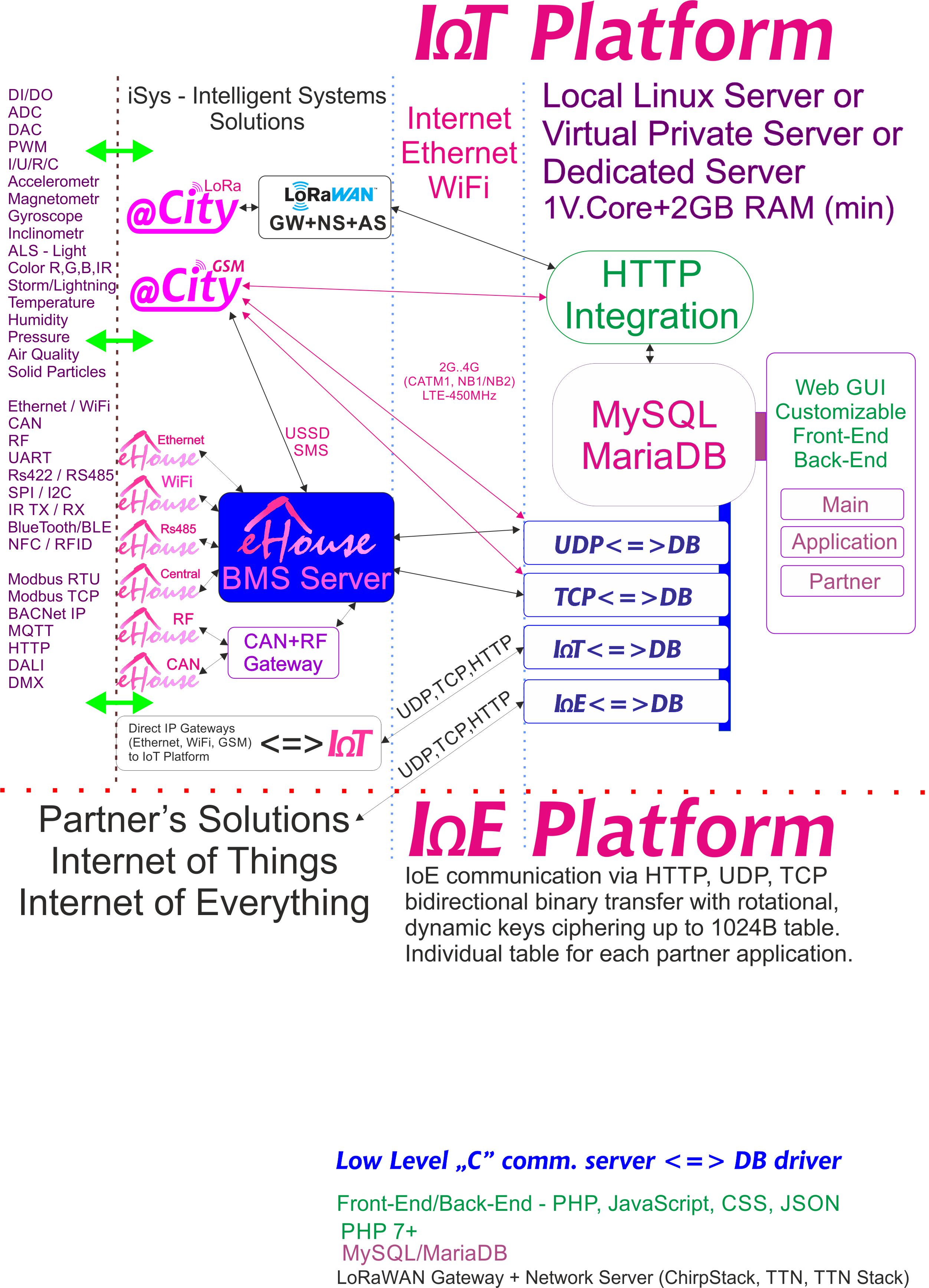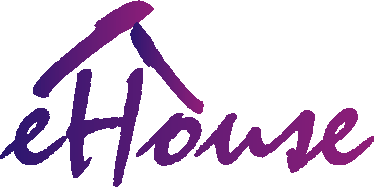IoT (Internet of Things) and IoE (Internet of Everything) Platform/Cloud solutions
IoE/IoT Platform
IoT - Internet of Things (Cloud only for native iSys - Intelligent Systems products, application, Franchise, Rebranding, IoT Cloud Gateways)IoE - Internet of Everything (Cloud for individual Partners and their applications) with dedicated ciphering table

- Low Level "C" language server application (executable/binary) - assures:
- non "open-source" scripts, code interpreters. Secure binary application protected from reverse enginering, moving to other locations, and so on. Hard-coded configuration for vendor for security and increase efficiency.
- more than 5 times smaller memory usage comparing to other programming languages solutions
- more than 15 times higher efficiency comparing to servers solutions written in other programming languages
- IoT Platform may work on Linux based systems (Debian, Raspbian, Ubuntu):
- Locally - on Microcomputers (Raspberry Pi 3,4, Tinker Board) and PCs (Intel/AMD x64, x86)
- in the Data Center (DC) - VPS (min 1VCore, 2GB RAM), Dedicated Servers. Many DC locations with many Hardware equipment variants.
- Binary data transfer (minimalize payload/packets size and overal data transmited via communication media).
- Enable transfers over LTE NBIoT NB1/NB2, LoRaWAN where there are a lot of limitations on packet size and amount of data send.
- Minimize battery utilization during transmission due to much shorter packages.
- Bidirectional communication with handshaking (Acknowledge):
- node=>server (status, commands, logs, ACKs)
- server=>node (ACKs, commands)
- Self protection against various attacks:
- timely disable and ignore attacker ip - based on invalid authorizations, repeated packages, invalid packages
- random UDP port jumping for handshake/repeated communications
- Various communication method based on UDP, TCP or HTTP
- Use common database (DB) systems MySQL or MariaDB for data storage
- Independent communication drivers with direct access to DB for system stability, operability:
- TCP <=> DB
- UDP <=> DB
- HTTP <=> DB
- Optional data caching in file system for 100% data capture.
- Data are cipered with IoT/IoE Protocol, hashed by individual hashing table for each partner.
- Optionally supplied final IoT "Nodes" devices to partners for direct IoT/IoE cloud communication, cyphering, verification, for many communication interfaces (WiFi, Ethernet, GSM, LoRaWAN).
- Optionally supplied gateways/bridges to IoE cloud from common communication interfaces (UART/RS232/RS485/RS422,CAN, RF, IR, BlueTooth/BLE, SPI/I2C)
- Optionally supplied gateways/bridges to IoE cloud`from common communication protocols (BACNet, MQTT, Modbus, DMX, Dali, IR standards)
IoE/IoT Protocol:
- communication independent protocol (ciphering + data validity)
- binary or text data
- low payload size increase after data encryption
- supplied microcontroller's "C" source code for "Nodes" for each partner under NDA and License.
- use unique and rotational Cipher table (up to 1024 Bytes) for each partner
- time-stamp for clock set, time synchronization, repeat packages detection, desynchronization of communications
- use multiple checksum (encrypted and nonencrypted data) for data validity check
- use dynamicaly changed algorithm for authorizations (depends on time-stamp, device-type, unique address, transmission counter)
- use multistage self extracted data decrypting algoritm for consistency check, data validity check






